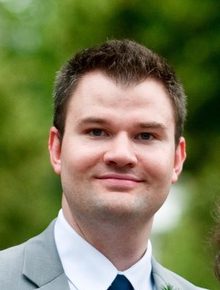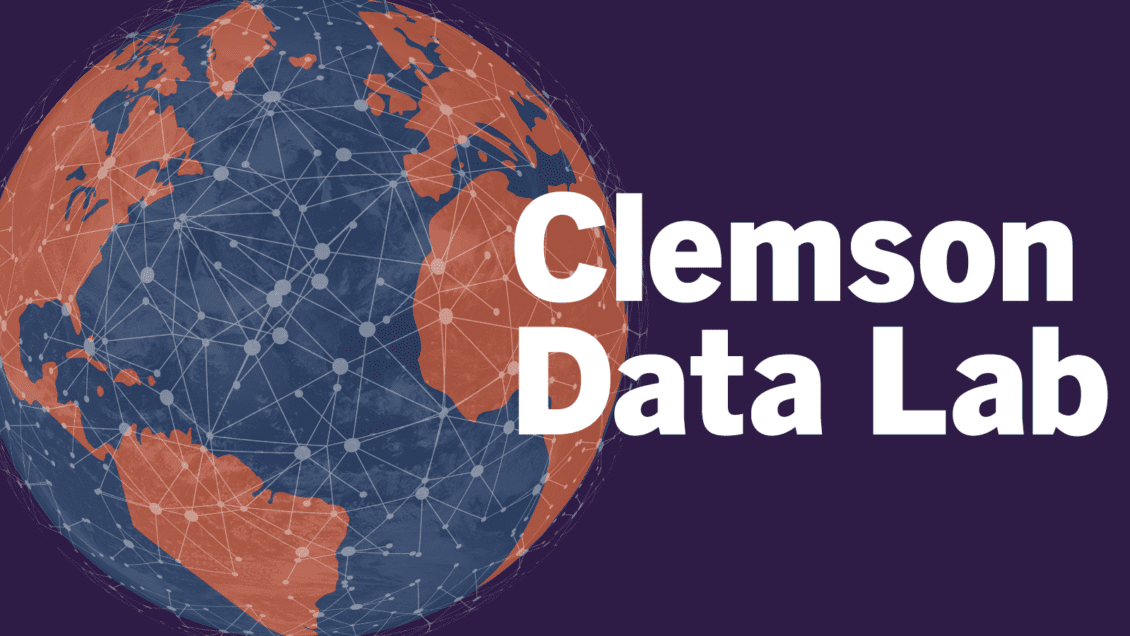Heading into his junior year at Clemson University, Richard Garcia knew he wanted to get his master’s degree in biomedical data and informatics, but didn’t have much hands-on experience with data science. Enter the Clemson University Data Lab. After only a few months into his internship with the Lab, Garcia collaborated with faculty on a nationwide research project, assisted other students on their work and now boasts tangible skills in multiple fields.
The Data Lab, a partnership between CCIT and the School of Computing, offers faculty and students an interdisciplinary hub for research assistance, training and computing resources for data-related projects and initiatives. Since its launch in June, the Data Lab has already played a crucial role in several projects at Clemson, partnering with faculty for over a million dollars on associated grants.

“We’re a resource to help experts and beginners outside of your typical avenues,” said Bart Swecker, Founding Director of the Data Lab and Executive Director of Data Science on the Clemson Analytics Team. “We can serve as a mechanism to help faculty take the next step with their projects and offer students a touchpoint with real data science work.”
With a field as fast-moving and complex as data science, the Data Lab can provide cutting-edge expertise on a wide range of areas for any discipline—from helping to incorporate data science into a sociology grant proposal, to writing a script that will analyze economics research on Clemson’s Palmetto Cluster supercomputer.

“What we’re trying to really do here is provide this concentrated effort where, if people are interested in data science or they need to utilize data science, they have this as a tool in their toolbox,” said Nathan McNeese, Assistant Professor, Founding Director of the Data Lab and Director of the Team Research Analytics in Computational Environments (TRACE) Research Group in the School of Computing. “It’s about providing opportunities for people across the university to leverage the capabilities of data science.”
Not only will the Data Lab support faculty and students in every step of the research process, but the Lab’s three student assistants play a key role in that support as part of a complete learning environment. For Garcia, the ability to cater to all audiences is a huge draw of the Lab.
“The Data Lab is very flexible about what you want to do. If you want to just learn about data science, you can do that,” said Garcia. “If you want to research, you can do that, and you can find whatever research topic you want to do as well. You’re not restricted to anything. And if you want to learn as well as do research, then, perfect. It’s good for both.”
Anand Gramopadhye, dean of the College of Engineering, Computing and Applied Sciences, said the Data Lab is a valuable tool for faculty, students and staff.
“Harnessing the power of Big Data is key to success across a wide range of disciplines and industries and is growing in importance as new technology makes it possible to capture ever-larger amounts of data,” he said. “The challenge in academia and industry is to find innovative ways of using the data, allowing us to look at challenges in a new light and find solutions not previously available. With this interdisciplinary lab, students, faculty and staff will have an enhanced ability to produce multi-faceted data-related research for their grants and publications. This will ultimately help advance knowledge in data analytics, thereby expanding knowledge in the field and preparing the future STEM workforce.”
Whether a visitor needs help conceptualizing how data science could play a role in their grants or needing more technical assistance, the Data Lab can assist in the background, letting the faculty or student shine as the owner of the grant. The Lab has also loaned out computing resources to Clemson faculty to boost a project’s research efficiency.
Amy Apon, C. Tycho Howle Director of the School of Computing, sees the Lab as an important instrument that will help researchers of all stripes.
“The School of Computing is delighted to see the work and collaboration made possible by the Data Lab,” said Dr. Apon. “Professor McNeese is a creative researcher and the team of McNeese and Swecker is providing support to students and researchers in a range of academic disciplines. Data is everywhere, from chemistry to transportation to social sciences to agriculture and more. The Data Lab supports the fundamental skills and tools and research approaches across all of these. I am excited about the future of the Data Lab.”
Located in 2004 Barre Hall, the Lab’s resources have been available virtually throughout the summer, fall and spring. Through the joint venture of CCIT and the School of Computing, the Data Lab aims to become a one-stop shop for data science guidance and engagement across the entire University. In addition to the multiple projects the Lab has helped since July, its service to students has already made a massive impact on Garcia’s future.
“I’ve gotten a lot of hands on learning in the actual analysis,” he said. “Every single facet of research has been hands-on. It’s affirmed my future aspirations of what I want to do in data science.”
For more information about the Data Lab, visit: cecas.clemson.edu/datalab
Get in touch and we will connect you with the author or another expert.
Or email us at news@clemson.edu

